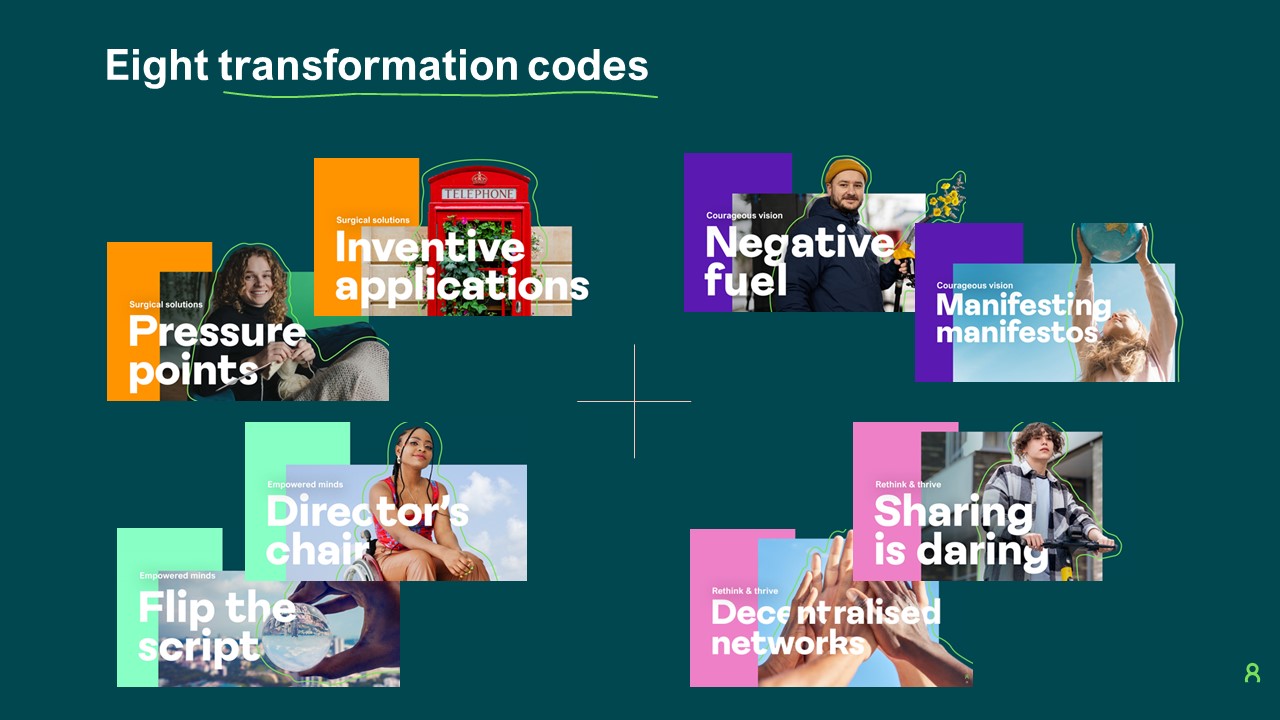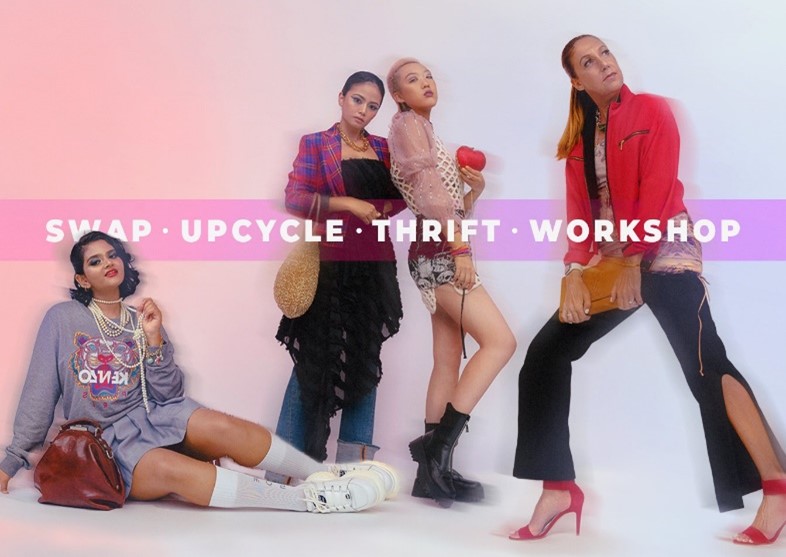Blog
What Matters in 2024: 8 trends for a better tomorrow
Eight ways how people and brands can drive positive change in 2024.


Katia Pallini
20 December 2023
3 min read
The season of gifting is here – something Co-op Food, the British retailer took at heart this year. Instead of running their traditional Christmas ad on television, they asked its members and customers to give “the gift of community spirit” and donate to local communities, which the group is promising to match. “Co-op is different, and we are proud of this,” said Co-op chief membership and marketing officer Kenyatte Nelson. “Our members own our business and together we show every single day of the year how powerful co-operation can be as a force for good.”
Co-op is one of the many brands who are committed to making a positive change. Something consumers increasingly expect from brands.
Together with the Space Doctors team, the cultural and creative consultancy within Human8, we researched the emerging tensions in transitioning to a regenerative future. We identified four dimensions of positive change and eight different ways people and brands are driving this transformation. In this blogpost we’ll zoom-in on some of these so called ‘transformation codes’.

1. Manifesting manifesto’s
We’re more and more conscious of the future we want and aspire to, yet we often feel powerless on how to get there or how to even start. This tension is fuelling a need for inspirational figures and leaders who can lead the way with a bold and fresh perspective. In fact, 78% of people worldwide say they need people, brands and organisations to take the lead and drive change.
Brands can play an important role here, by taking a stand and leading by example. Inspiring others with a fresh point of view and daring to make sacrifices for the greater good.
The boldest, bravest and biggest example out there must be Patagonia. Starting as a brand creating climbing gear with an eye for the environment and donating 1% of their revenues, they changed their purpose in 2018 to: “We’re in business to save our home planet”. In 2022, Patagonia’s founder, Yvon Chouinard, transferred 98% of all stocks to a non-profit which will use all earnings to protect the planet.
“It’s been a half-century since we began our experiment in responsible business. If we have any hope of a thriving planet 50 years from now, it demands all of us doing all we can with the resources we have. As the business leader I never wanted to be, I am doing my part. Instead of extracting value from nature and transforming it into wealth, we are using the wealth Patagonia creates to protect the source. We’re making Earth our only shareholder. I am dead serious about saving this planet.” – Yvon Chouinard
2. Sharing is daring
The high cost of living, weakened demand and monetary tightening has made 2023 a challenging economical year. This has forced many of us to rethink how we spend our money. The throwaway culture that defined our past is not only no longer possible, but also not viable, with more people recognising its negative impact on both people and the planet. This is driving the need for alternative ways to access goods and services beyond buying and ownership. 57% of people worldwide believe we need to move from owning to sharing goods, as this will not only allow increased access to more (high-quality) products and services, but also result in less waste. Yet, only 1 in 3 already actively chooses renting/ sharing over owning, making this a big opportunity space for brands.
Brands can help drive this change by moving beyond a sole focus on purchasing and owning products. It’s about rethinking their business models and embracing circular thinking, where they take responsibility for the entire lifecycle of their products.
The Fashion Pulpit is a clothing swap space that encourages people to extend the lifespan of fashion items and minimise textile waste. You can simply go to their studio with clothes you don’t use anymore, get points based on the quality and start swapping with that budget. Next to that, Fashion Pulpit also conducts events around sustainability and style, empowering consumers to take charge of their consumption habits.

3. Director’s chair
There’s a growing frustration that not everyone is in a position where their voices are heard, but change often lies in these marginalised perspectives. 67% says people who have experienced injustices themselves often know best what needs to change. Yet, it’s often the more privileged groups – that are distanced from the issues – that make key decisions in society. This is fuelling the belief that we need to give a voice and platform to those with a vision but previously lacked the chance, connections or resources to act upon it. Yet, in reality only 43% has engaged with people, brands and organisations that actively do so, highlighting there is room for brand initiatives in this space that aim to close this gap.
Brands can do so by recognising and supporting people that are often unheard, listening to them and helping them tell their story and installing the change they need.
Twenties is a semi-autobiographic comedy series that follows a queer black woman in her twenties as an aspiring writer in Hollywood. Using humour, the show highlights the struggles historically excluded groups encounter when balancing life and professional career, as well as the discrimination in Hollywood. Lena Waithe is the creator of the show, using the series as a platform to tell her own story. “This is the first time a masculine-of-center black woman has been the centre of a show on prime-time TV.” – Lena Waithe
4. Pressure points
Being overwhelmed with recommendations on what (not) to do, we seek to understand which concrete actions we can take for maximum impact. We don’t want to do more; we want to do less. Just like acupuncture can release stress and deblock the body through precise points, we are looking for precise and focused actions that can have an exponential impact. In fact, 77% of people worldwide are looking to learn and understand what concrete actions they can take to create a better future for people and planet.
Brands play an important role here, where they can lead by example or educate people in this journey. This by focussing on concrete, targeted actions that can have an exponential impact – and helping people understand how they can do the same.
Washing polyester garments releases microfibres into our waterways causing immense damage to marine life and vital ecosystems. The brand GUPPYFRIEND informs and educates people on this topic and creates products that stop microplastics such as washing bags, sink filters, and cleaning cloths.
Want to learn more on how brands and people are navigating towards a better tomorrow? Get your copy of our free 2024 What Matters report.
Ready to do what matters?
Let’s connect